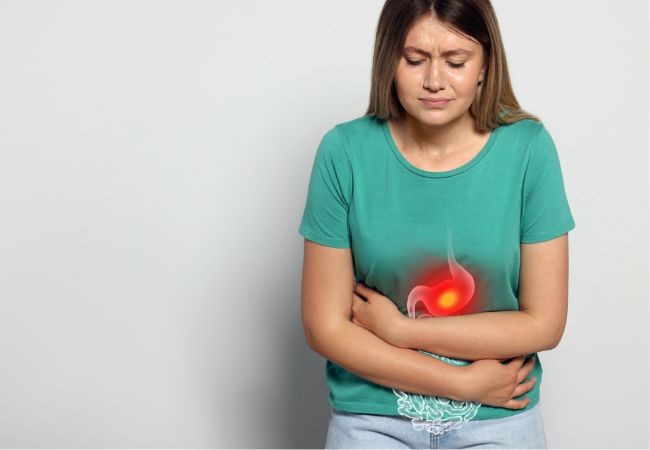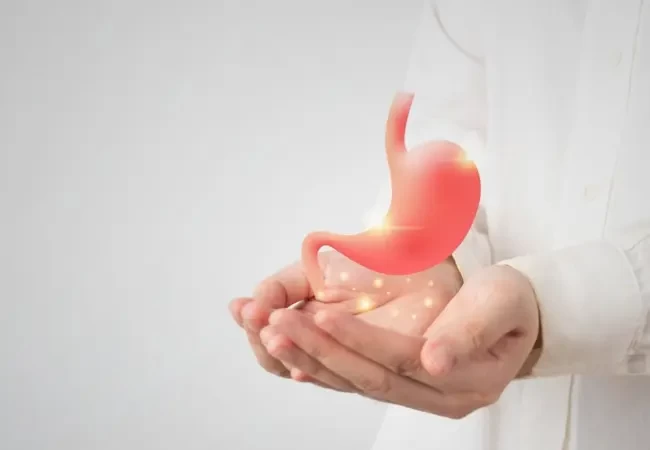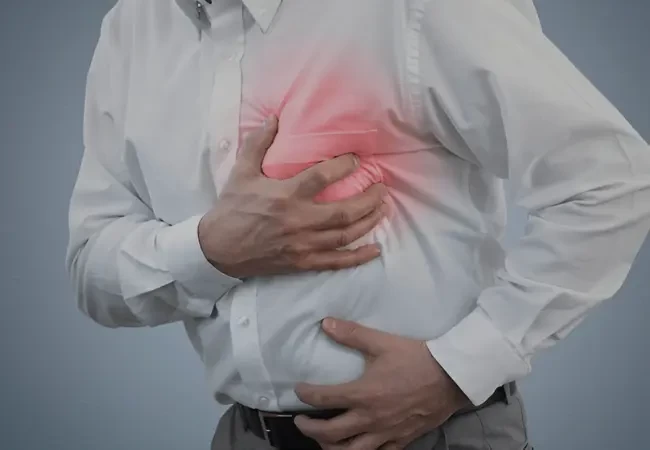Gastrointestinal diseases are health problems that affect the digestive system which includes the stomach, esophagus, small and large intestines, rectum, and the organs that help with digestion like the gallbladder, liver, and pancreas.
Gastrointestinal diseases affect the digestive system right from the mouth to the anus. They come in two types like functional and structural.

There are many digestive problems that range from mild to severe. Here are some of the most common gastrointestinal disorders:
Stomach problems: Gastritis, stomach ulcers, gastroenteritis, slow stomach emptying (gastroparesis), stomach cancer and lactose intolerance.
Esophageal problems: Acid reflux (GERD), inflammation of the esophagus (esophagitis), narrowing of the esophagus and difficulty swallowing.
Gallstone disease: Gallstones, gallbladder inflammation (cholecystitis), bile duct infection (cholangitis) and bile duct narrowing.
Rectal disorders: Hemorrhoids, loss of bowel control, anal fissures, infections near the anus, rectal pain, rectal prolapse and inflammation of the rectum (proctitis).
Cancer involving stomach, foodpipe, intestines.
The causes of gastrointestinal diseases are as follows:
Stress: Stress and digestive issues are connected. Stress can lead to loss of appetite, stomach pain, inflammation, bloating, cramping and changes in gut bacteria.
A low fiber diet: Fiber which is an indigestible carbohydrate is essential for good digestion. Insoluble fiber helps food pass through the digestive system, promotes bowel movements and prevents constipation.
Dairy foods: People with lactose intolerance cannot fully digest lactose in milk which lead to gas, diarrhea, and bloating after eating dairy. Milk and cheese have proteins and fats that are hard to digest thus eating too much can cause stomach discomfort.
Aging: As people age, factors like reduced activity of digestive glands and medication use affect gut movement which cause reflux, constipation, and other digestive issues. The risk of gastrointestinal cancers also increases with age.
Gastroesophageal Reflux Disease (GERD): It is a long term condition where stomach acid flows back into the esophagus that causes heartburn and acid reflux.
Peptic Ulcer Disease: These are open sores that develop in the stomach, small intestine, or esophagus due to H. pylori infection or long term use of pain killer medications.
Inflammatory Bowel Disease (IBD): These are chronic inflammatory conditions of the digestive tract like Crohn's disease and ulcerative colitis which cause inflammation and ulcers.
Irritable Bowel Syndrome (IBS): It is a functional digestive disorder that causes abdominal pain, bloating, and changes in bowel habits without visible damage or inflammation.
Gastroenteritis: This is the inflammation of the stomach and intestines that occurs usually from viral or bacterial infections and causes diarrhea, vomiting, and abdominal pain.
Celiac Disease: It is an autoimmune disorder triggered by gluten which causes damage to the small intestine and poor nutrient absorption.
Gallstones: Hard deposits in the gallbladder that are often made of cholesterol or bilirubin causes abdominal pain, nausea, and jaundice.
The doctor will record the patient's medical history and symptoms to diagnose a GI disease. They may also do a physical exam to better understand the problem. The doctor might recommend some diagnostic tests such as:
Visit your doctor right away if you:
Visit your pediatrician right away if your child:
To check if your child is dehydrated, watch how much they drink and urinate and compare it to their usual amount.
Take your baby immediately if they:
You can visit EMC Hospital as we have a department of The Gastroenterology & Liver unit. We are the best gastroenterology hospital in Kochi. We offer comprehensive and evidence-based treatment for acute digestive system conditions. As the best hospital in Kochi, we treat disorders of the esophagus, stomach, small intestine, colon, and biliary system, including the liver, pancreas, gallbladder, and bile ducts.


Discover the truth behind common plastic surgery myths. Learn what's real, what's outdated, and how modern procedures truly work.

A step-by-step overview of GI surgery, covering what to do before surgery, what happens in the OR, and how to ensure a strong recovery.

Learn about cancer, its early signs, and prevention tips to lower your risk. Early detection saves lives—stay informed, take proactive steps, and protect your health.

Discover why a skilled pediatrician is essential for your child's growth, development, and overall well-being, from infancy through adolescence.

Discover how dermatology can help tackle acne, slow aging, and treat various skin conditions for healthier, more radiant skin.

Discover common childhood allergies, their symptoms, and management tips. Stay informed to keep your child safe and healthy.

Your liver plays a vital role in metabolism, digestion, immunity, and detoxification. Learn how liver health affects your body and ways to maintain its function.

Strong bones support your body and protect your health. Discover simple diet, exercise, and lifestyle tips to maintain bone strength at any age.

Discover the symptoms, causes, and treatment of hypertensive heart disease. Learn how high blood pressure affects your heart and when to seek medical care.

Learn about chest pain symptoms, causes, and treatments. Know when to seek medical help for a healthier heart.